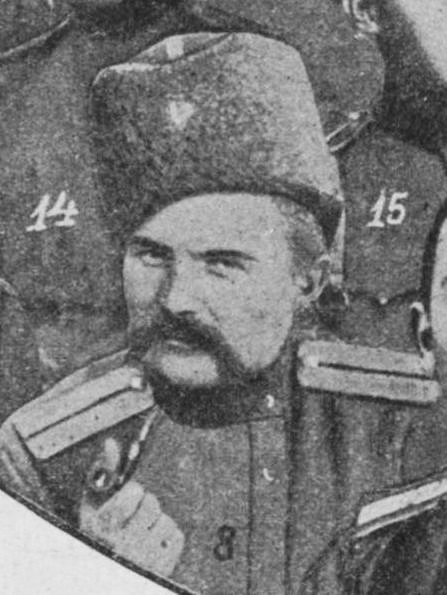Fedir Borzhynskyi
5/28/2025

Fedir Kindratovych Borzhynskyi (Fedir Demydovych Makushek, Fedir Konradovych Borzhymskyi) was born on February 3, 1879 in the village of Verkhnyachka, Uman povit, Kyiv province. In 1900–1902 he studied at the Chuhuiv Infantry Cadet School, after which he served in the 51st Lithuanian Infantry Regiment (Simferopol). In 1904, he was transferred to the 7th East Siberian Rifle Regiment, with which he took part in the Russo-Japanese War, and was wounded. In 1905–1909, he studied at the Oriental Institute, which trained military intelligence officers to work in the Far East. He spoke Japanese, Chinese, English, Mongolian, Buryat. In 1910–1914, he was engaged in intelligence work in Mongolia, China and the Far East. For special services to the Mongolian and russian governments, he received the title of Baron.
He took part in the First World War. During the years of the national liberation struggle for independence of Ukraine, he supported the idea of proclaiming Ukrainian statehood. In June 1918, he was appointed Ukrainian State Consul in Pyatigorsk. On September 20 of the same year, Hetman Skoropadskyi promoted him to the rank of Colonel and appointed plenipotentiary representative of the Ukrainian State in the Kuban. Immediately after his appointment, F. Borzhynskyi began active work aimed at establishing a friendly attitude to Ukraine in the region, uniting compatriots around the Embassy, and publishing his own newspaper.
In his secret reports, F. Borzhynskyi constantly informed about the brewing conflict between the Kuban government and the command of the Volunteer Army, which grossly violated the traditional Cossack self-government. He drew attention to the fact that a real information war was unfolding against the young Ukrainian State in the Kuban, which was being waged by representatives of russian chauvinistic organizations. On behalf of the Ukrainian Embassy, he strongly condemned such actions of representatives of the Volunteer Army, repeatedly prepared notes protesting against the involvement of Kuban kazak units in hostilities on the Ukrainian front. But this only irritated Denikin’s inner circle, which eventually found a reason to get even with the intransigent Ukrainian Ambassador.
After Hetman Pavlo Skoropadsky had been replaced by the Directory in Ukraine, F. Borzhynskyi decided to go to Kyiv to get instructions on further work in the Kuban. Upon arrival at the Volnovakha railway station, the diplomatic carriage was surrounded by an armed detachment of Denikinists. The Ambassador and all his colleagues were arrested.
They tried to persuade F. Borzhynskyi to go over to the side of the Volunteer Army and further participate in the armed struggle in its ranks for the restoration of “united and indivisible russia”, but he resolutely rejected the idea. He was executed by shooting on February 14, 1919 on the outskirts of Yuzivka (now Donetsk). The burial place is unknown.
